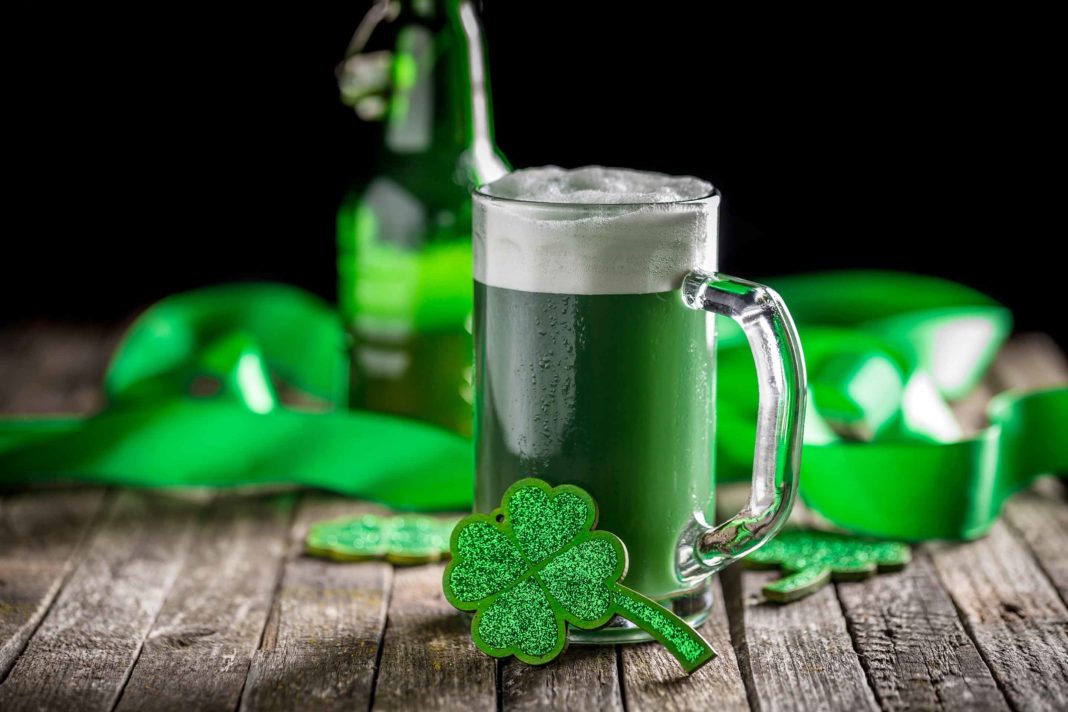Today we celebrate the feast-day of our national patron, Saint Patrick.
As we do every year, let’s go through the motions of pretending to think about Saint Patrick and – in a broader sense – the notion of what it means to be Irish. The fact that this is the centenary of the 1916 Rising gives such self-conscious introspection more weight this year than ever.
As the great Republican bard Ding Dong Denny O’Reilly said of Saint Patrick, “he comes over from Wales or wherever, and of course, they don’t want him and we say, ooh, very good. St. Patrick was like an early David Gray in that respect.”
What makes us Irish? Rain. In 98AD, the Roman historian Tacitus christened this place “The Land of Winter” and, sure enough, it’s barely stopped raining since.
What else? Not being British. Begrudgery. A frightening dependency on alcohol (also known as “having the craic”.) Shoddiness. A glorious inability to get anything right, from the Rising to Irish Water.
What also makes us Irish is a particularly un-Christian, sex-obsessed version of Catholicism which has tormented countless generations. Saint Patrick might have brought the light of learning to Ireland but he brought a great darkness too. A read of the SAVI (Sexual Abuse and Violence in Ireland) report would leave you utterly despairing.
Our version of Catholicism gave us the Magdalene Laundries, the Mother and Baby Homes and the barbaric practice of symphysiotomy, which saw women cracked open and left to lifetimes of suffering. It also gave us the Eighth Amendment.
Every single day, twelve Irish women (and some of them are only girls) leave the country to head abroad for terminations. The Eighth Amendment remains a toxic legacy from Ireland’s culture wars of the 1980s. It was then that religious fundamentalists planted their amendment as a bulwark against the oncoming tide of liberalism, as they tried to steady themselves against the legalisation of contraception, divorce and – worst of all! – homosexuality.
In truth, we were never going to legalise abortion – certainly not in the early 1980s – but the Eighth was to be their open goal, their easy victory. It remains to this day, a landmine planted in a long-lost war and one which blights the lives of Irish women generations later.
Thus we see a woman dying in agony because, as Savita Halappanavar was told, “This is a Catholic country”. Thus we see a young rape victim being forced, as Ms Y was, to remain pregnant until her pregnancy was barely on the cusp of viability and she could be carved open by c-section. Thus we see a dead woman being kept artificially alive because her doctors fear prosecution. As happened to Ms P.
Thus we see countless women forced to carry non-viable pregnancies to term or take the ferry or the plane to more civilised territories.
Ireland still has its redeeming features. Last year’s marriage equality referendum showed we have a great decency to us; a decency which is a country away from the curtain-twitchers who thought themselves “decent”. We have a great sense of family, of community and of place.
And – as Fintan O’Toole pointed out recently – we are not inherently racist. For all we suffered under Austerity, there’s not a single viable political movement here selling racial fear and hatred. In other European countries, especially those afflicted by Austerity, right-wing parties peddle the notion that “our” problems can be blamed on “them” – immigrants, Muslims.
It’s worth remembering, though, that back when we thought we were the kings of the universe, in 2004, our then-Justice Minister, Michael McDowell, facing into the European and Local Elections, decided the greatest crisis afflicting Ireland was babies being born in Ireland. He proposed a Constitutional amendment to deny automatic Irish citizenship to children born here.
Panicked at the lurid fantasy of caravan-trains of asylum-seekers pitching up here pregnant, we turned out to vote at the unusually high rate of 60% and we voted to be mean-spirited by a resounding 80%. That was our 27th Amendment.
Today, Ireland warehouses over 4,500 asylum seekers in direct provision, 1,791 of them children. These are kids who were born here, who have spent their entire lives here and who will never be Irish. Direct provision crams families into single rooms, forcing hundreds of people into close proximity; adults living on €19 a week. Some 60% of applicants have been in this limbo for over three years, some waiting seven years. This is a recipe for horrors.
In 2011, Cork Simon reported that 34 people had slept rough for one night or more. In 2015, it was 311. In 2011, Cork Penny Dinners served roughly 100 meals a week. Now they’re serving 1,800 meals a week. They report lately a remarkable shift in the type of people they now see calling in. They still look after homeless people, those of us who have already fallen between the cracks, but now they are seeing people with jobs, people with families, people who – once they’ve paid the rent – have no money for food.
Our proclamation talks of “cherishing all the children” and tedious people love to point out that this meant nationalist and unionist alike, rather than literal children. It doesn’t matter.
In 2012, we enshrined children’s rights in our constitution. Today, Traveller children have an infant mortality four times that of the general population. Statistically, they wouldn’t be much worse off in a 1940s mother-and-baby home.
Every year, over 3,000 children report that they have suffered sexual abuse. Large numbers of these children never access therapeutic services. We are failing kids who have already been brutally mistreated and who are in desperate need of help.
There are almost 2,000 children in emergency accommodation tonight and many, many more go to be bed hungry every night. This is our Ireland, on our hundredth birthday.
This is our Ireland. Nobody else can fix it.
This is our Ireland. We have our work cut out.
Beannachtai na Feile Pádraig.








